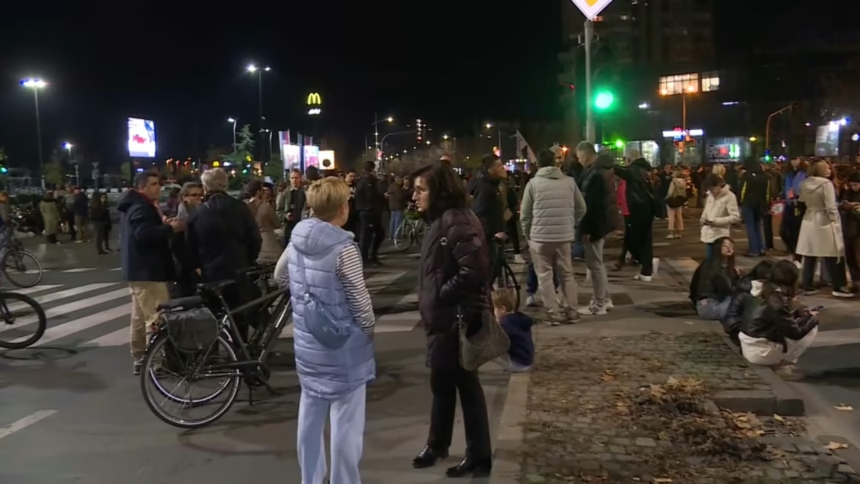The blockade of Novi Sad’s main bus station, originally confined to its exits, expanded today to cover the entire Boulevard of Liberation. The action was organized by students under the slogan “If Jaćimović doesn’t drive, neither should anyone else”, in solidarity with Milomir Jaćimović – an independent transport operator now on the sixth day of a hunger strike.
The protest has drawn a growing number of supporters, temporarily halting intercity bus services and even affecting local transport, with buses parked near the station unable to proceed. The demonstration also includes professors, civic assemblies, and motorcycle groups whose vehicles are physically blocking station exits.
Despite the scale of the protest and its prior announcement, there is minimal police presence – just a handful of plainclothes officers, according to N1’s field report.
Student activist Olga, a Philosophy student at the University of Novi Sad, told N1 that the blockade is expected to last until 6 PM, after which the students plan to march to the site of Jaćimović’s hunger strike to express direct support.
“He has stood by us many times, offering free transport to protests across Serbia. Today it is our turn to stand with him,” Olga said.
She described the hunger strike as a tragic reflection of the state of justice in Serbia:
“It’s heartbreaking that a man, a single father, must starve himself to be heard. Both he and Dijana Hrka – who is on her 14th day of hunger strike – are being ignored by authorities. What we’re seeing are fake negotiations, staged for regime-controlled media.”
The absence of an official response from the government only reinforces perceptions of authoritarian disregard for citizens’ rights, particularly those who stand up against the Vučić administration. According to students and activists, this blockade is not just about Jaćimović, but about resisting systemic oppression, silencing of dissent, and dismantling citizen-led movements through exhaustion and intimidation.
Meanwhile, Jaćimović’s case highlights broader concerns: in addition to leading his own business, he has become a grassroots hero among students for offering free rides to protests in Belgrade, Novi Pazar, and elsewhere.
As solidarity builds, so does unrest – and once again, the regime’s fear of genuine civic resistance seems to be driving the silence.







